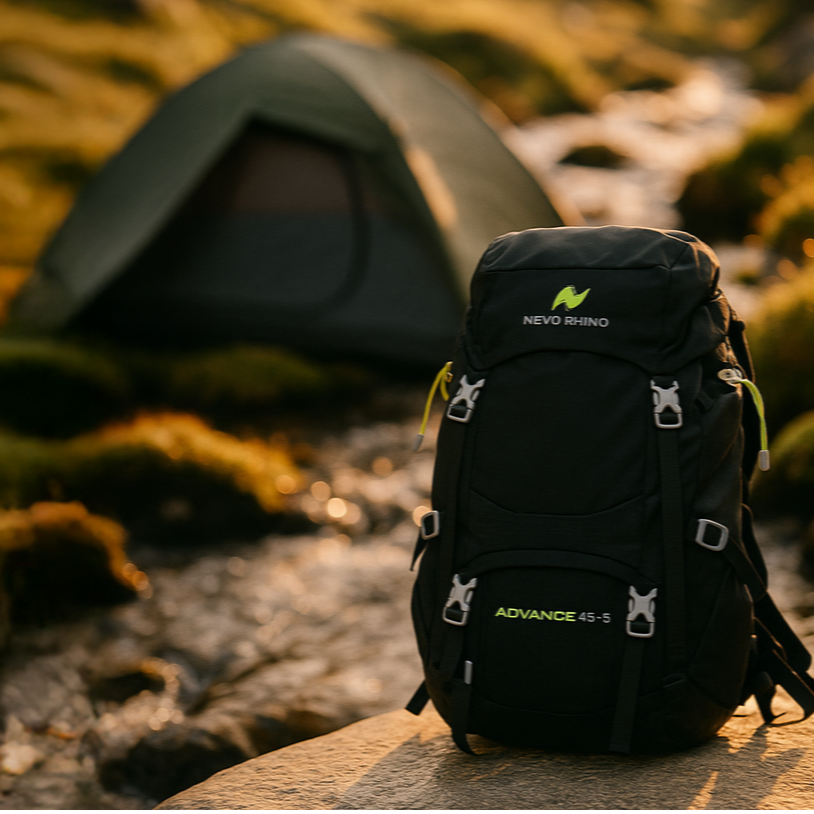
Can You Drink Rainwater While Camping? (What Every Beginner Should Know)
Share
When you're out in the wild and it starts to rain, it’s natural to wonder:
Can I drink this?
Rainwater feels pure. It's falling from the sky, untouched by taps or bottles. But when you're camping — especially as a beginner — it's not as simple as just tilting your head back or filling a cup.
Let’s break down when rainwater is safe to drink, when it’s not, and how to do it the right way if you want to stay healthy in the backcountry.
Is Rainwater Safe to Drink?
The short answer: Sometimes — but not without caution.
Rainwater can be one of the cleanest sources of water in nature, but that doesn’t mean it’s always safe to drink right off the bat.
Here’s why:
- As rain falls, it can pick up pollutants from the air (especially near cities or wildfires).
- If it lands on leaves, tents, or tarps, it may collect dirt, bacteria, or chemicals.
- Improper storage or collection can lead to contamination.
Bottom line: If you're going to drink rainwater, you need to collect it cleanly and treat it properly.
How to Collect Rainwater Safely While Camping
If you're in a backcountry setting and want to collect rainwater:
✅ Use a Clean Surface
- Use a clean tarp, poncho, or rain fly as a funnel
- Avoid dirty tent roofs or gear that's been touched by hands, bugs, or tree sap
✅ Catch Direct from the Sky
- Place a clean pot, bottle, or collapsible water container directly under the sky
- Avoid water that has dripped off trees or your gear
✅ Filter It Anyway
Even “clean-looking” rainwater can carry microbes. Treat it just like you would stream or lake water:
- Use a water filter (Sawyer, LifeStraw, etc.)
- Boil it for at least 1 minute (or 3 at higher elevations)
- Use purification tablets as a backup
Never drink untreated rainwater from puddles, leaves, or tarps.
When Should You Use Rainwater?
Rainwater can be a great backup water source when:
- You're low on filtered water
- You're far from a stream or lake
- You want to conserve your supplies
It's especially useful in dry climates where surface water is scarce — but only if you’ve packed the right tools to treat it.
🚫 When Not to Rely on Rainwater
There are a few times when rainwater is not worth the risk:
- During wildfires — rain can carry ash and toxins from the smoke
- Near urban areas — industrial pollutants can get picked up by rain
- From dirty or unknown surfaces — if you’re unsure how clean the collection surface is, don’t risk it
How We Handle Water at 7th Step
We always recommend bringing a reliable water filtration method on every trip - whether it’s a filter, tablets, or a stove for boiling.
The Seventh Step Starter Kit includes ultralight cookware that makes boiling and storing water simple. So if you need to purify rainwater in a pinch, you're ready.
Because nothing ruins a trip faster than drinking bad water.
Stay Hydrated. Stay Smart.
Yes, you can drink rainwater, but only if you collect it safely and treat it properly.
Clean water is survival 101. It’s not worth the risk to skip filtration, even if the sky looks clear and the water looks pure.
→ Get Your Starter Kit
Pack light, stay safe, and keep water one less thing to worry about.












